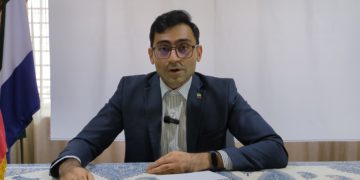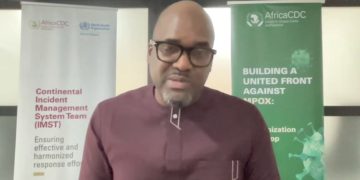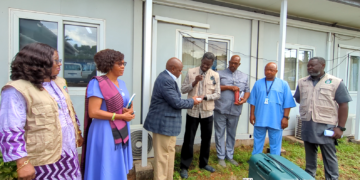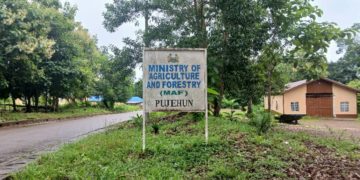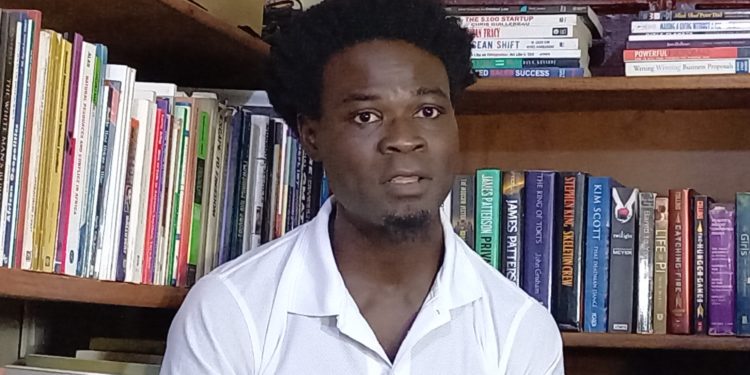This month Sierra Leone clocks 20 years in peace, after its eleven years [1991-2002] brutal civil war.
On January 18, 2002, President Ahmad Tejan Kabbah declared the war over: “Di war don don,” he said in the now famous phrase.
But that was just the beginning of a new phase in the country’s journey as a nation. It had to deal with the multitude of socioeconomic issues occasioned by the war, including refugees, victims, reparations and, very importantly, maintaining the fragile peace.
Several organizations were established to ensure that these issues remain on the agenda of successive governments. One of these organizations is the Center for Memory and Reparations, whose main area of focus is to facilitate remembrance and maintain common narratives around the war.
As part of commemoration of this year’s anniversary of the end of the war, in the first in a series of reports, ManoReporters TV talked to Joseph Kaifala, founder of the Think Tank, about his organization and its mission, the state of peace in the country and the way forward in efforts to maintain lasting peace in the country.
ManoReporters: When you conceived the idea of the Center, what did you have in mind?
The Center for Memory and Reparations was started in reaction to the conditions of victims of the civil war, especially the amputees.
When I was a student in 2004, I came back for holidays and I was walking in the streets of Freetown, then I realized that the victims of the civil war who were beggars in the streets of Freetown were not treated nicely. And as a young Sierra Leonean, I decided to take an action to improve their situation.
What I did a few years later in 2012 was to start what we initially called the Sierra Leone Memory Project. We interviewed victims of the conflict and brought it back to secondary schools and radio stations for other Sierra Leoneans to be able to listen to their situation and to facilitate dialogue and teach younger Sierra Leoneans about the civil war and the fact that many of these amputees and other victims of the conflict really bear the brunt of our civil war. And a few years later, that materialized into a Think Thank – the Center for Memory and Reparations, because what we truly wanted to do was to facilitate remembrance and common narratives around the Sierra Leonean civil war by making sure that we continue the conversation from where the Truth and Reconciliation Commission (TRC) left off. And that is the work we have been doing ever since then.
ManoReporters: The Center has two main thematic areas. Kindly elaborate on what each entails.
Primarily our work is centered around memory and remembrance, trying to make sure that we do not forget. I always tell people who are Christians that there was a reason Jesus said to his disciples: “Do this in memory of me,” because it is dangerous to forget the history of mass atrocities.
In this country we have a saying that: “If you do not know where you are headed, remember where you are from.” That is the primary aspect of our work, making sure that Sierra Leoneans remember our past of mass atrocity. Eleven years of civil war is a long time. And that is not a history we want to forget easily.
We are really working against this phrase that came out immediately after the war because people didn’t want to deal with the consequences of the conflict: ‘Forgive and forget.’ We did well forgiving, but forgetting should not be part of our national existence.
And secondly, we are doing reparations, especially what the TRC called “symbolic reparations”, that is memorialization. And as part of that work, we have constructed a civil war memorial in Lungi, that we are also using to bring Sierra Leoneans together to continue the dialogue and conversation around the civil war so that we can learn from our experiences and deal with the past together. So those are the two areas of our work.
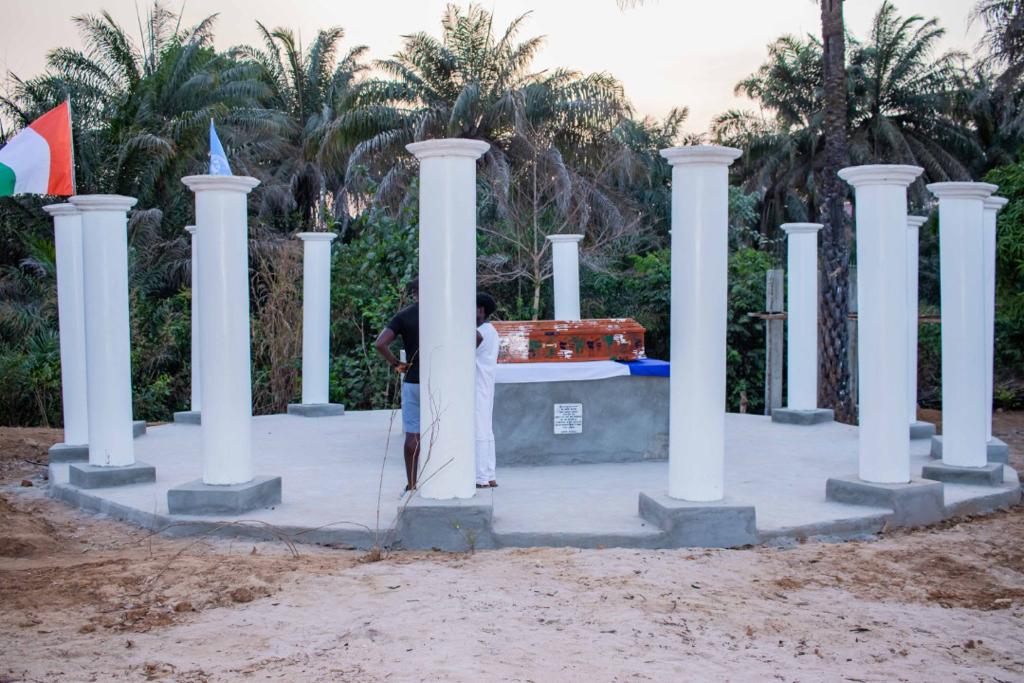
ManoReporters: 20 years on, what do you think about your achievements?
We have been able to bring information about the conflict to classrooms across the country, to make sure that young Sierra Leoneans are learning about their history, even as horrible as it is.
Secondly, we have been working in identifying, mapping and protecting mass graves around the country.
We have identified and protected 10 mass graves in 10 districts in this country and placed memorial plaques on them. And when we place these memorial plaques on them, we also bring the community together to do what we call traditional rite ceremony, because many of the people in the mass graves across the country died in places where they were unknown and there were no traditional rites ceremonies. And in this country, we believe that when people die, we conduct various ceremonies and bury them.
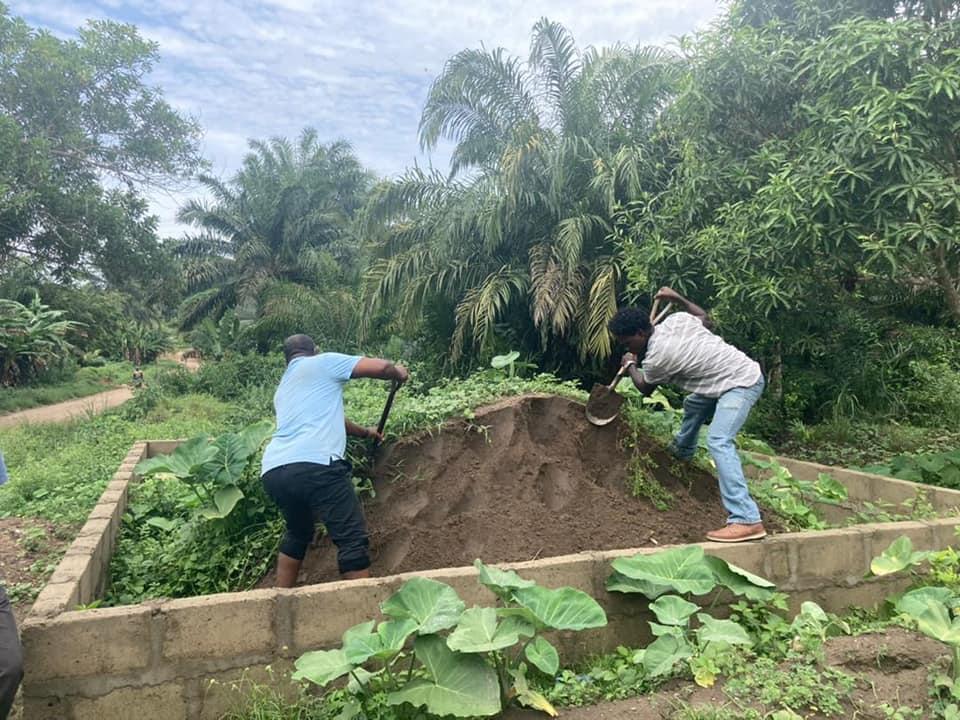
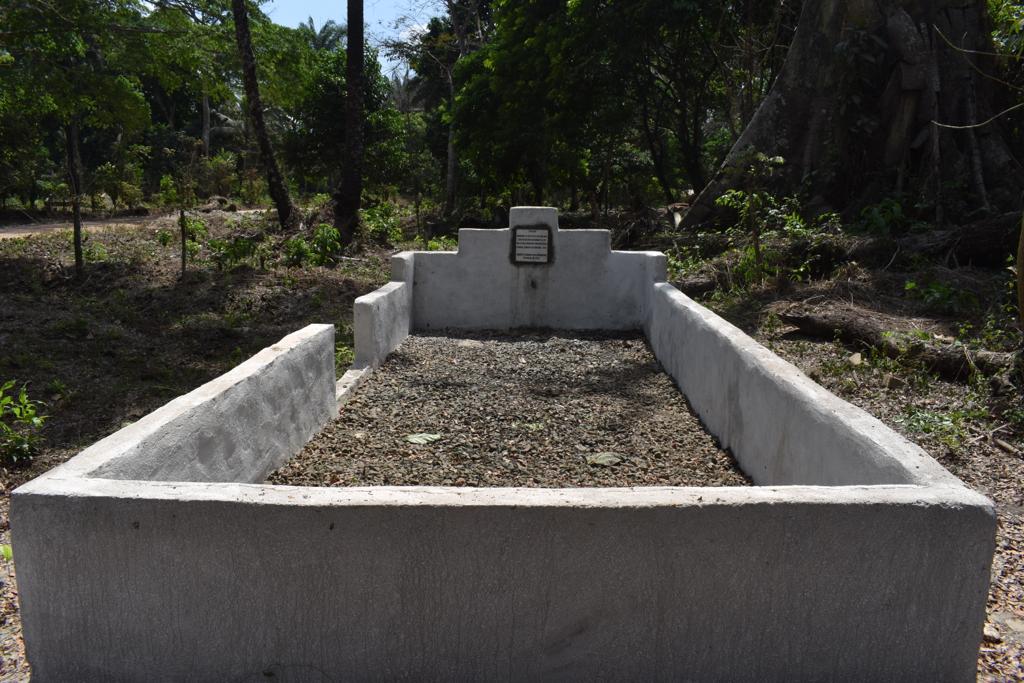
So what we do is we bring people together to do this for those they lost in the war, and to also be able to break bread together and share the stories of their experiences during the conflict.
These are some of the things that we have been doing across the country.
We also renovated the war monument in Bomaru, where the civil war actually started.
ManoReporters: One of your objectives is to ensure that the TRC recommendations are implemented. What’s your view on how far the country has gone on that?
Many of the recommendations of the TRC were inevitable immediately after the war because we had already destroyed the country and we needed to rebuild. What the TRC wanted to ensure that we do was to rebuild this country on democratic foundations, because it categorizes the reasons for the civil war into three: violations of fundamental human rights, corruption and bad governance.
So most of its recommendations are based on these three areas, and we have been able to institutionally implement some of these recommendations.
The current administration, within the past two years, has implemented many of the recommendations of the TRC, for instance the abolition of the death penalty, they are currently working on a gender bill, and the radical inclusion in education, free education. These were all part of TRC recommendations.
What we have been calling on the government to do is the recommendation that the government declare January 18 as National Reconciliation Day, in order to facilitate remembrance activities around the country, so as to help us deal with the past.
We haven’t been able to quite get the government to do that yet. We still have a few days left. I don’t know whether they will or not, but it will be important for the government to officially declare a day where we can pause and reflect on the civil war and rebuild this country together because we are still rebuilding. This country was destroyed for eleven years, it will take a long time to bring it back on a level where we can be satisfied with our achievements.
ManoReporters: The government recently established the peace commission. What’s your take on that?
The Peace Commission is very important, as long as it doesn’t become another dormant institution, like many institutions tend to be in this country. [This is] because, for instance, if the human rights commission which already exists had done its work as it is supposed to, there would be no need for a peace commission, because of the human rights commission is the custodian of the TRC work.
We don’t want to create a commission that becomes another dormant institution. So if we can get it to stick to its mandate, we really proactively bring this country together and to enforce the idea of peace and national cohesion that it was founded for, then it is a great, great, great idea.
But you and I know that this country has a way of creating institutions that don’t really do what they are created to do and in a few years, become completely defunct. We don’t want that. And we are looking forward to seeing what the Peace Commission can achieve in this country.
We need a peace commission, but only to the extent that it can go beyond the work that they human rights commission was created to do.
ManoReporters: As part of this year’s commemoration, your organization is has created a hastag #DuSomtinFoSalone. What’s that about?
For many years we have been advocating for the government of Sierra Leone to declare National Reconciliation Day, but they have not done so. As a Center we decided to commemorate National Reconciliation Day even without a government declaration. And we wanted to use our past experiences for what we like to describe as community peace. And community peace come out of individual action for the community. And that is why we created this hastag: #DuSomtinFoSalone,
What we do is encourage Sierra Leoneans on January 18, which is National Reconciliation Day, to take 60 minutes of their day, just 60 minutes, an hour, to do a community service of their choice, so as to help their community, because we don’t want National Reconciliation Day to be simply a day where we all sit around and continue to mourn about what we have been through.
We want to use that past tragedy to create better societies and better communities in our country and that is what this hastag is about.
And as we approach January 18, 2022, it is very important on this 20th anniversary of the end of the civil war, for Sierra Leoneans to come together and help each other by taking 60 minutes of their day on National Reconciliation Day, to do whatever community service.
And community service doesn’t have to cost you money. You can go to a local school and teach. You can donate to an institution, You can write an article about the conflict – a blog. You can tell you experiences to those who don’t know much about the conflict – things that you can do within your own means.
Those with extra resources can share with those who don’t have. And if you don’t have material resources you can give your talent.
But whatever it takes, for 60 minutes, help your community.
Thank you for your time talking to ManoReporters.
You may also want to watch the interview on our ManoReporters TV


